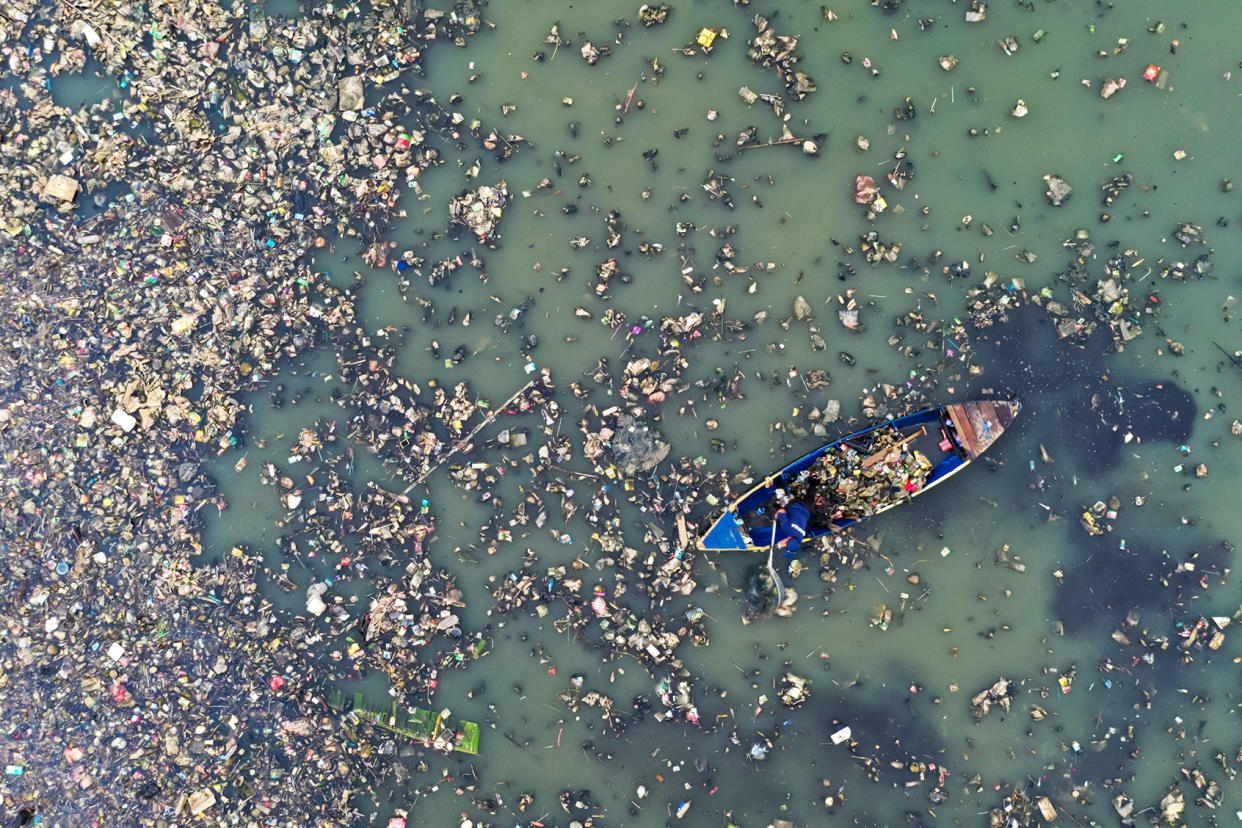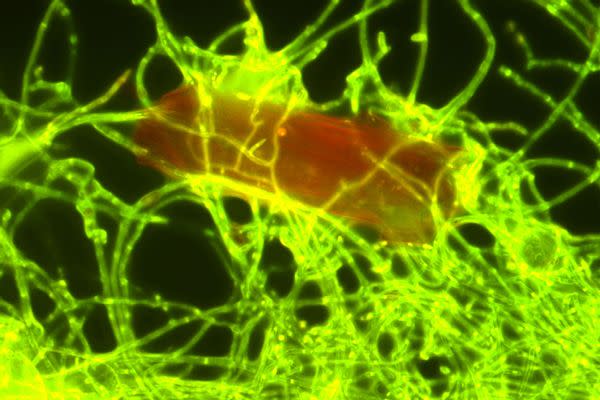Scientists discover ocean fungus that eats plastic

Scientists have discovered a possible new tool for addressing the growing problem of plastic pollution in the world's oceans. A recently published study by an international consortium of researchers details a marine fungus called Parengyodontium album which lives on plastic litter in the ocean. The fungus is capable of breaking down polyethylene particles — the most prevalent commercial plastic in the ocean — once the plastic has been exposed to ultraviolet light. The team also discovered the amount of time it takes for fungus to do its job.
“Marine fungi can break down complex materials made of carbon. There are numerous amounts of marine fungi, so it is likely that in addition to the four species identified so far, other species also contribute to plastic degradation. There are still many questions about the dynamics of how plastic degradation takes place in deeper layers," lead study author Annika Vaksmaa, of the Royal Netherlands Institute for Sea Research, said in a Monday release. "What makes this research scientifically outstanding, is that we can quantify the (plastic) degradation process."

The discovery was the product of international scientific collaboration between study authors at the Royal Netherlands Institute for Sea Research and researchers from Utrecht University, the Ocean Cleanup Foundation and research institutes in Paris, Copenhagen and St Gallen, Switzerland. A large number of bacteria types are known to be able to break down plastic. But Parengyodontium album is the latest of just four known marine fungi species able to degrade plastic.
Researchers noted that humans annually produce more than 400 billion kilograms of plastic, an amount that is expected to triple by the year 2060. Plastic pollution, including microplastic debris, has been linked to human infertility as well as reproductive drops in several forms of marine life — and is considered to be a long-standing cause of ecological disruption more widely. The White House recently announced an initiative to address so-called "forever chemicals," a prominent byproduct of plastic pollution and waste.

